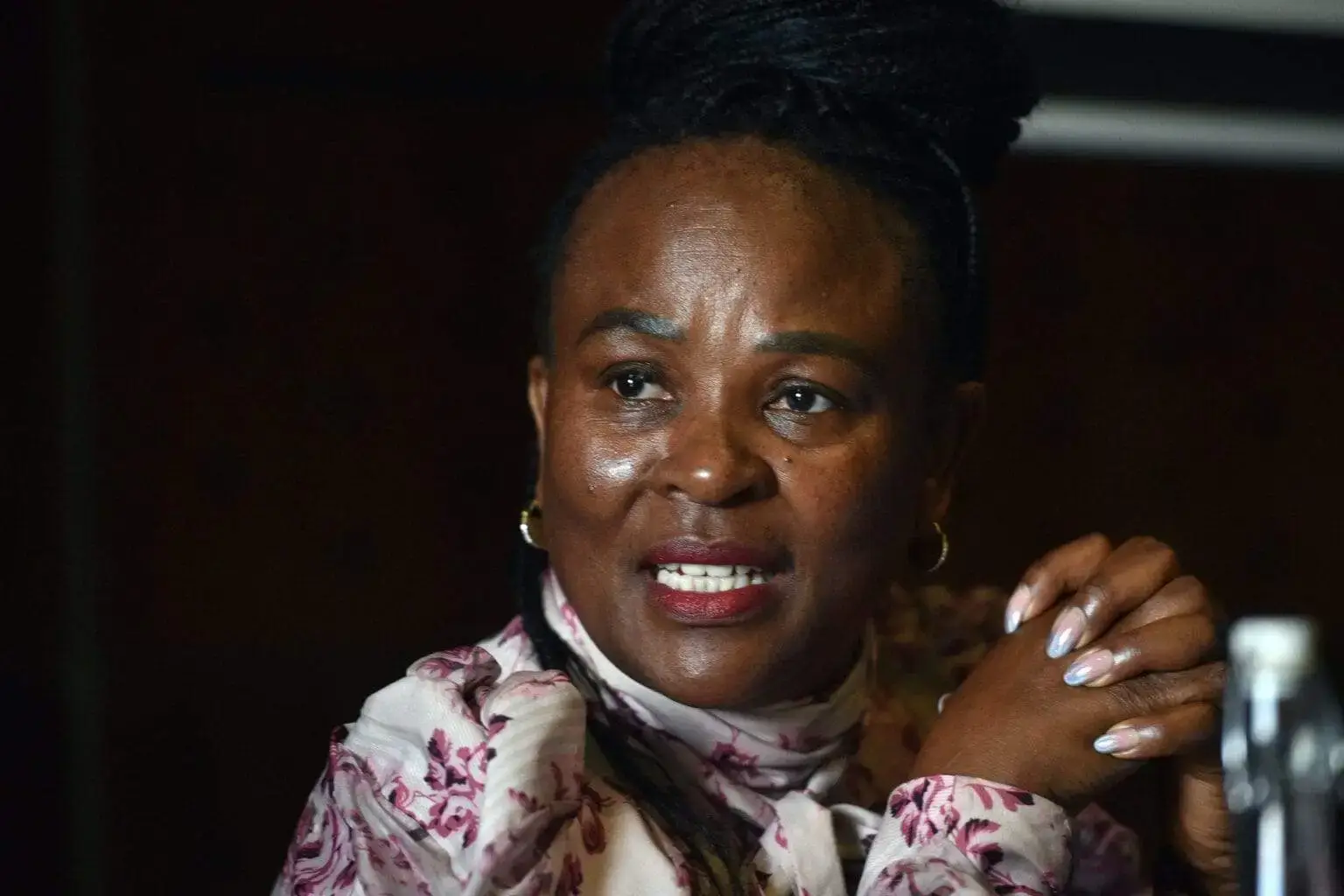Busisiwe Mkhwebane is a prominent figure in South African politics and law, known for her role as the former Public Protector of South Africa. Her tenure has been marked by a series of high-profile investigations, legal challenges, and controversies that have made her a well-known yet divisive personality in the country’s public sphere. From her early work in human rights to her position as a Public Protector and subsequent entry into politics, Mkhwebane’s journey is both complex and influential.
Here are 20 key facts that highlight her life, career, and the controversies she faced along the way.
1. Birth and Early Life
Busisiwe Mkhwebane was born on February 2, 1970, in Bethal, in the then-Transvaal province (now Mpumalanga).
2. Education
She matriculated from Mkhephuli Secondary School in 1988 and later pursued higher education in law, earning a BProc and LLB from the University of the North (now the University of Limpopo).
3. Advanced Studies
Mkhwebane also holds a diploma in corporate law and a higher diploma in tax from the Rand Afrikaans University (now the University of Johannesburg). In 2010, she completed a Master’s in Business Leadership at the University of South Africa (UNISA).
4. Early Legal Career
Her legal career began in 1994 when she joined the Department of Justice as a public prosecutor. In 1996, she transitioned to a role as a Legal Administrative Officer in the International Affairs Directorate.
5. Human Rights Work
In 1998, she joined the South African Human Rights Commission as a senior researcher, contributing to the protection and promotion of human rights in the country.
6. Role in the Public Protector’s Office
Mkhwebane initially joined the Public Protector’s office in 1999 as a senior investigator and acting provincial representative. This experience later paved the way for her future appointment as Public Protector.
7. Work with the Department of Home Affairs
She moved to the Department of Home Affairs in 2005, where she served as the director for refugee affairs and later as acting chief director in asylum seekers management in 2009.
8. International Experience
Between 2010 and 2014, Mkhwebane worked as a Counselor in Immigration and Civic Services at the South African embassy in China.
9. Allegations of Gupta Links
During her time in China, Mkhwebane’s bank account was flagged by HSBC for receiving a payment of $5,000 from the Gupta family, which was linked to a controversial railway contract. Mkhwebane has denied any wrongdoing or connection with the Gupta family.
10. Appointment as Public Protector
In October 2016, Mkhwebane was appointed as South Africa’s Public Protector, succeeding Thuli Madonsela. Her appointment raised eyebrows due to her previous role with the State Security Agency.
11. Relationship with Jacob Zuma
Mkhwebane’s tenure as Public Protector was marked by claims that she had a close relationship with then-President Jacob Zuma, which fueled debates about her impartiality.
12. Ramaphosa BOSASA Report
One of her most controversial actions as Public Protector was her investigation into President Cyril Ramaphosa’s BOSASA donation. Her report concluded that Ramaphosa had misled Parliament, but it was later set aside by the courts, which found the investigation unlawful and irrational.
13. Attempt to Change the South African Reserve Bank’s Mandate
In 2017, Mkhwebane attempted to amend the mandate of the South African Reserve Bank to focus on economic transformation. This move was deemed unconstitutional by the courts, and the Reserve Bank’s independence was upheld.
14. ABSA/Bankorp Report
Mkhwebane’s report on the bailout of Bankorp by the apartheid government, which recommended that ABSA repay R1.125 billion, was another controversial decision. The court ruled against her, citing a lack of objectivity and honesty in her investigation.
15. Vrede Dairy Project Investigation
In May 2019, her report on the Vrede Dairy Project, which involved alleged corruption in a state-funded dairy farm in the Free State, was declared unconstitutional. The courts found that Mkhwebane failed to investigate key aspects of the case.
16. Personal Costs Orders
Several of Mkhwebane’s legal defeats resulted in personal costs orders against her, including one for the ABSA/Reserve Bank case. The Constitutional Court upheld this decision, amounting to an estimated R900,000.
17. Impeachment Process
Her performance as Public Protector faced intense scrutiny, and in March 2021, the National Assembly began an inquiry into her fitness to hold office. This process culminated in her impeachment in September 2023, making her the first head of a Chapter 9 institution to be removed through impeachment.
18. Impact of Impeachment
Her impeachment occurred just a month before her seven-year non-renewable term would have ended. As a result, Mkhwebane forfeited a R10 million gratuity that she would have otherwise received.
19. Role as a Member of Parliament
After her impeachment, Mkhwebane joined the Economic Freedom Fighters (EFF) and became a Member of the National Assembly in October 2023. She held this position for a year before resigning in October 2024.
20. Director at Iyanilla Bricks
Beyond her legal and political career, Busisiwe Mkhwebane is the Director of Business Development at Iyanilla Bricks, showcasing her involvement in business ventures outside of public service.
